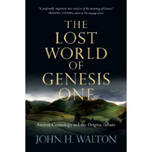In his public apology, Tiger Woods stated, “Buddhism teaches that a craving for things outside ourselves causes an unhappy and pointless search for security. It teaches me to stop following every impulse and to learn restraint. Obviously I lost track of what I was taught.”
Regardless of whether Tiger lost track of what he was taught or instead walked away from it in willing rebellion, the golfer’s prescription for looking only within himself to try to repel outward cravings opposes the true functioning of our heart. Looking within leads to the failure of self-attempted morality. The answers to reducing desires are not pieced within us awaiting assembly. Our hearts are passion vacuums, seeking meaning from outside of self. Our heart, by design, will always be a passion pursuer. A wrong desire or habit is not expelled from our lives by telling ourselves it is not to be desired. We will not give up a previous passion until a new passion is in its place that has a greater satisfaction to empower us to release the first. Tiger might have been able to self-medicate his sin, or as he calls them mistakes, if his escapades had curtailed his greater passion to be great golfer. Since his escapades seemed to not impinge upon his greater passion of winning tournaments, he allowed both to exist. It will be most difficult for him to release his sexual addiction until he finds a newer, more powerful passion–even than golf or maintaining his “brand” which failed him– to sustain his recovery.
What we learn from all of this.
The cessation of a all desire means the cessation of what it means to be human, despite the claims of Buddhism. Instead of denying that we should have cravings or calling the fact we have desire wrong, we should instead find a higher satisfier of our passions. Something that draws us so deeply that we gladly abandon our previously wrong cravings for the satisfaction of the new passion. Their are differing levels of passion that each outward object or pursuit generates within us. us. Objects with higher levels of pull can displace older ones. To find the highest “object” worthy of our passion should be our life’s pursuit. The highest object of passion that fills our heart’s vacuum is God, known fully through His Son Jesus Christ. Having this proper and good passion allows us to release lesser passions that are temporal and fail to truly satisfy.
One of the best writers on this is Thomas Chalmers (1780-1847) in his work, The Expulsive Power of a New Affection. I am almost finished with a modernization on this which I will post this week. It is a great reading.


